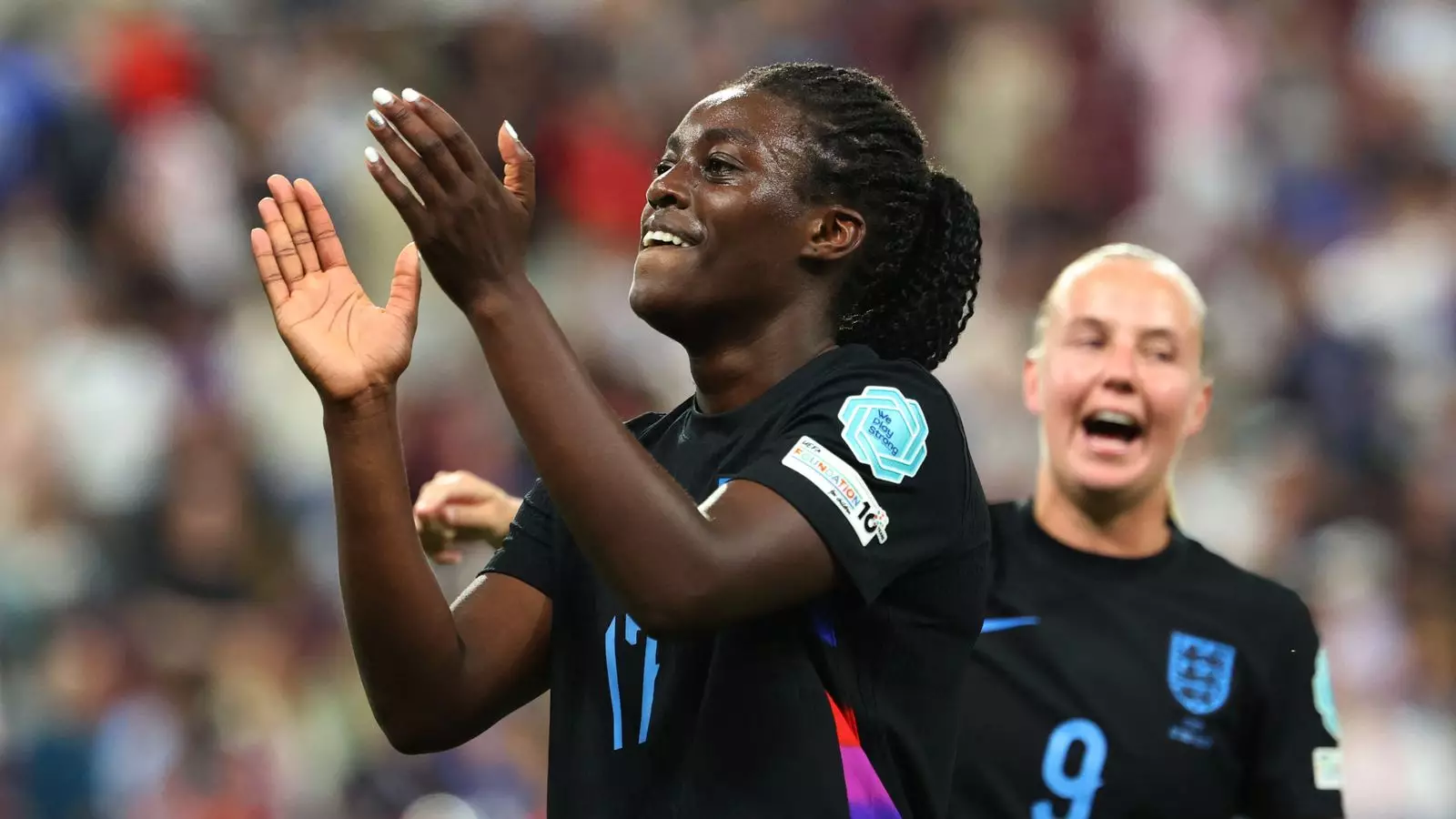In recent years, the landscape of women’s football has undergone an extraordinary transformation. Once overshadowed by skepticism and neglect, England’s Lionesses have defied expectations, becoming icons of resilience and excellence. Their journey from underperformance to regular appearances in finals illustrates a broader shift—not merely in sport but within societal attitudes towards female athletes. This isn’t just about winning trophies; it signifies a powerful assertion of identity, capability, and the breaking down of entrenched gender barriers. Yet, amid this upward trajectory, a question persists: will this final match against Spain be the culmination of their rise or just another chapter in a longer story of unwavering perseverance?
For years, England’s women’s football team was an underdog, with fleeting moments of brilliance marred by inconsistency. The historic victories—such as triumph at Wembley in 2022—have cemented their status as genuine contenders. No longer are they seen as outsiders or hopefuls; they’re now perceived as serious threats on the European and global stages. Leadership figures like Leah Williamson recognize this evolution and understand that each final isn’t simply an opportunity for silverware but also a testament to the progress made and the responsibilities that come with it. The concept of “taking things for granted” is foreign to them—they know all too well how fragile success can be without unwavering dedication.
This innate understanding positions England as not just a team aiming for victory but as trailblazers of social and cultural change through sport. Their success echoes a larger narrative of empowerment for women, especially in a sport historically marginalized. Running alongside their athletic pursuits is a broader societal dialogue—the fight for respect, recognition, and equality. The Lionesses’ journey isn’t solely about the pitch; it’s about chiseling away stereotypes that confine women’s roles, both within sports and society at large. Their resilience exemplifies a broader liberal ethos: advocating for progress, challenging the status quo, and inspiring younger generations to believe in their worth.
Spain: The Upstart Challenge and Its Underlying Significance
Spain’s emergence as a football powerhouse marks a pivotal shift within women’s sports—one that transcends the game itself. Historically, Spain’s football narrative was dominated by men, with women’s teams playing second fiddle or existing on the peripheries. Now, Spain’s women’s team is reaching its first Euros final, symbolizing a broader cultural awakening around gender equality and women’s rights. This isn’t merely a sporting rivalry; it’s a reflection of societal change.
Captain Irene Paredes’ comments reveal the nuanced reality—while celebrating progress, the nation remains aware of the work that’s left. The controversies surrounding Spain’s recent World Cup victory, especially the infamous on-pitch kiss that led to sexual assault convictions, cast a shadow over their triumph. These incidents have sparked vital conversations about consent, respect, and the dignity of women—issues that the sport’s visibility forces into the spotlight. It’s a stark reminder that sports are never isolated from societal dynamics; they are both mirror and catalyst for change.
Spain’s climb reveals an emerging national pride rooted in improving women’s rights and fostering an inclusive environment. Their final against England isn’t just about football; it’s about solidifying these societal advances. Victory or defeat, the outcome will resonate beyond the pitch: a testament to how sport can serve as a battleground for social justice. Such symbolism reinforces that the fight for gender equality is intertwined with progress on every level—from legislation to cultural attitudes.
Finals as Catalysts for Cultural Shifts
This upcoming fixture carries enormous weight—not simply as a sporting event but as an emblem of societal progress. Both England and Spain understand that winning transcends the trophy; it signifies the maturity of women’s football and the acknowledgment of female athletes’ rightful place in the sporting hierarchy. The match embodies a fierce contest of resilience, skill, and ideological resolve—a testament to how far women’s sports have come, yet how much potential remains untapped.
From the perspective of center-leaning liberal values, this final embodies hope and the ongoing push for equality. It’s a celebration of effort, skill, and human dignity, emphasizing that progress demands continuous advocacy. Both teams, especially England’s Lionesses, carry the weight of histories filled with adversity and marginalization. Their pursuit of victory is also an implicit call for societal acknowledgment that women’s voices and achievements deserve respect, funding, and recognition.
However, this final also exposes the delicate balance between celebration and the acknowledgment of ongoing struggles. While victory would be a proud milestone, it also risks overshadowing the inequalities and cultural challenges still pervasive in both nations. Both teams stand as symbols—reminders that sports are not just games but arenas where societal narratives are contested and reshaped. This match could serve as a platform to accelerate reforms and reinforce the importance of respect, equality, and resilience in the face of socio-political obstacles.
As the tension mounts and the stakes rise, both sets of players carry more than their physical abilities; they carry the hopes for a more just, inclusive future. Their performance on the field becomes a moral statement—one that demands recognition not just for their talent but for their role in shaping societal progress. The outcome may be decisive, but the messages they send are even more enduring: that perseverance, dignity, and shared humanity are at the heart of true victory.

Leave a Reply